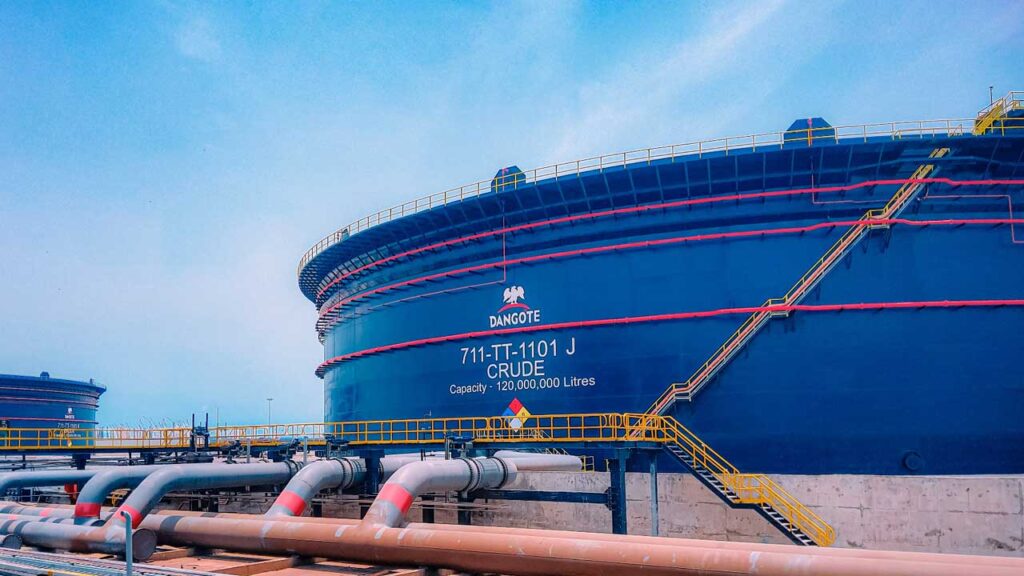Despite the buzz around Dangote Refinery and other local refineries ramping up production, Nigeria still relies heavily on imported petrol. Why is this happening? Stakeholders in the petroleum industry have shed light on the reasons behind this puzzling trend. Let’s dive into the details and uncover the truth!
The Big Question: Why Import When We Have Local Refineries?
Nigeria’s Dangote Refinery, along with the Port Harcourt and Warri refineries, has been hailed as a game-changer for the country’s energy sector. Yet, petrol imports have surged by a staggering 105% in 2024, hitting N15.4 trillion. Even in February 2025 alone, fuel imports reached N930 billion. What’s going on?
Stakeholders like Billy Gillis-Harry, President of the Petroleum Products Retail Outlet Owners Association, and Tunji Oyebanji, former Chairman of the Major Marketers Association of Nigeria, have shared their insights. Here’s what they revealed:
1. Fear of a Monopoly: Keeping the Market Competitive
Billy Gillis-Harry emphasized the importance of a free and competitive market. Retailers don’t want to rely on a single source for petrol, as this could lead to a monopoly. A monopolized downstream sector could mean less competition, higher prices, and fewer choices for consumers.
Retailers are sourcing petrol from multiple channels—Dangote Refinery, NNPC, and imports—to ensure they get the best prices and maintain a healthy market. As Gillis-Harry put it, “We subscribe to full liberation so that we will not run a monopolized downstream sector.”
2. Price Instability: A Retailer’s Nightmare
Imagine buying petrol at N889 per liter, only to wake up the next day and find the price has dropped to N825. Sounds unfair, right? That’s exactly what retailers are dealing with.
Sudden price changes by refineries, without prior consultation with retailers, create uncertainty and financial losses. This instability makes it risky for retailers to depend solely on local refineries. As Gillis-Harry explained, “We cannot buy a product at N889, and overnight, the prices are dropped to N825. That is unfair.”
3. Local Refineries Can’t Meet Demand (Yet)
While Dangote Refinery claims it can meet 100% of Nigeria’s petrol needs, the reality seems different. According to the Nigerian Midstream and Downstream Petroleum Regulatory Authority (NMDPRA), local refineries only met 50% of the national demand in February 2025.
Tunji Oyebanji clarified that until local refineries can fully satisfy domestic demand and offer competitive prices, imports will remain necessary. “If local refineries produce enough to satisfy local demand and sell at a competitive price, then no right-thinking businessman will import,” he said.
4. Conflicting Reports: Who’s Telling the Truth?
The situation is further complicated by conflicting reports. While the National Bureau of Statistics claims petrol imports surged in 2024, NNPC insists it hasn’t imported any petrol in 2025. This discrepancy has left Nigerians confused and skeptical about the true state of the downstream sector.
Oyebanji suspects some reports are being used to push specific agendas. “Seems it is to advance a particular agenda,” he noted, urging stakeholders to focus on facts rather than narratives.
5. The Price War: Who Benefits?
In recent months, NNPC and Dangote Refinery have slashed petrol prices, sparking a price war. While this has led to lower prices at the pump (ranging from N860 to N970 per liter), it has also created uncertainty for retailers and marketers.
Price wars might seem great for consumers, but they can destabilize the market in the long run. Retailers need stable and predictable pricing to plan their operations effectively.
What’s Next for Nigeria’s Downstream Sector?
The debate over petrol imports versus local production is far from over. For now, retailers will continue to source petrol from wherever they can get the best deals—be it Dangote Refinery, NNPC, or imports.
The key to ending Nigeria’s reliance on imports lies in increasing local production capacity, ensuring price stability, and fostering healthy competition. Until then, the petrol import saga continues.
